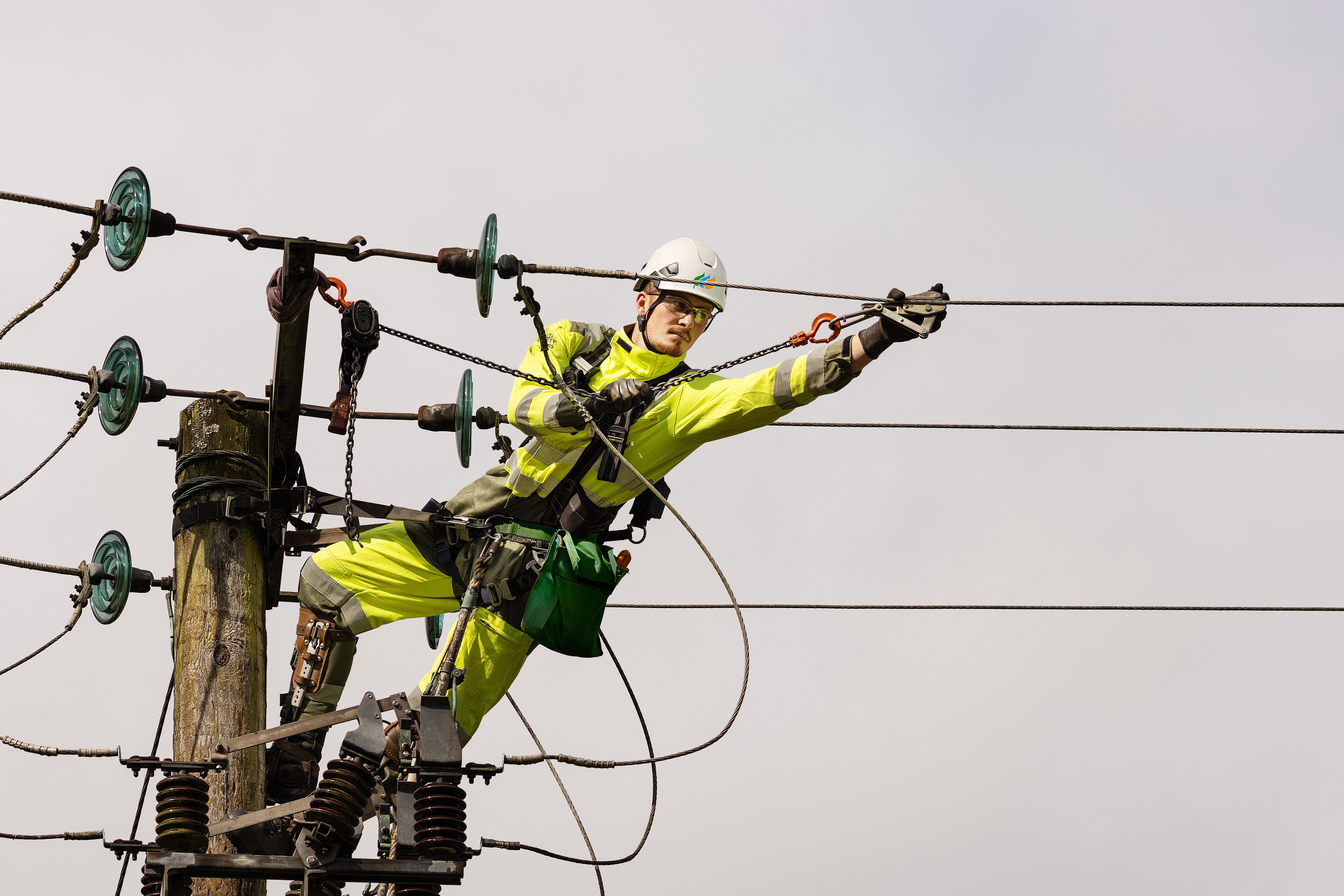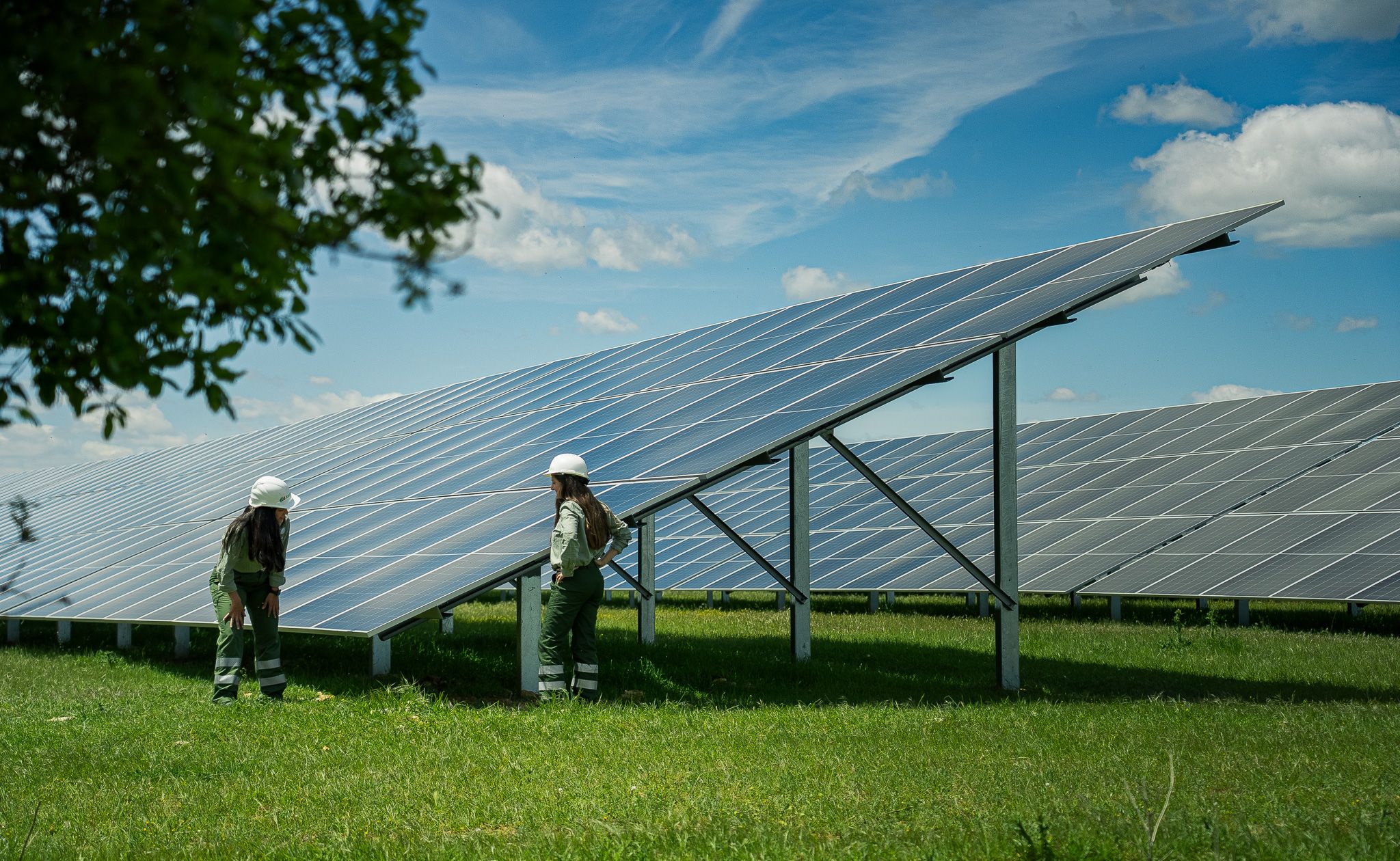Emprego verde
Empregos verdes: os trabalhos do futuro, bons para você, para o meio ambiente e para a economia
A transição para uma economia descarbonizada não é só fundamental para frear as mudanças climáticas, também é um indutor de crescimento econômico com potencial para criar milhões de empregos verdes. Falamos de trabalhos diretamente destinados a proteger o meio ambiente ou daqueles que visam minimizar o impacto sobre a saúde do planeta.


Nos últimos anos, o mercado de trabalho passou por uma transformação sem precedentes. O rápido avanço das tecnologias tem sido o principal motor dessa mudança de paradigma, mas não é o único: a transição energética também desempenha um papel fundamental na remodelação dos trabalhos no mundo, impulsionando a criação dos chamados empregos verdes em diversos setores. Definidos como aqueles trabalhos que contribuem substancialmente para preservar ou restaurar a qualidade ambiental, os empregos verdes já são uma realidade em vários países, desde os mais ricos até as economias emergentes.
O mundo precisa acelerar a transição para uma economia descarbonizada e ecológica. É uma transição que, além de ter o potencial de frear as mudanças climáticas, também pode se converter num autêntico motor de crescimento. Ela pode criar numerosos empregos em vários setores. Esta oportunidade, no entanto, vem acompanhada de desafios, como a necessidade de desenvolver uma força de trabalho qualificada no mercado de trabalho verde por meio de orientação e formação específica.
A economia circular, que propõe reutilizar, reparar ou reciclar, aumentando a fabricação e o consumo sustentável, também será uma fonte de criação de empregos verdes. Dessa forma, além de reduzir os resíduos, economiza-se energia e contribui-se para evitar os danos irreversíveis causados em termos de clima, biodiversidade e poluição do ar, do solo e da água, devido à utilização dos recursos num ritmo que ultrapassa a capacidade da Terra para os renovar.
O que é um emprego verde e que impactos tem na economia
O Programa das Nações Unidas para o Meio Ambiente (PNUMA) define os empregos verdes como "os trabalhos de agricultura, atividades de fabricação, pesquisa e desenvolvimento, administração e serviço que contribuem de forma considerável para preservar ou restaurar a qualidade do meio ambiente". Em outras palavras, os empregos ambientais são aqueles destinados a proteger e promover o meio ambiente ou os que levam sempre em consideração o seu impacto sobre a saúde do planeta e tentam minimizá-lo. De acordo com a Organização Internacional do Trabalho (OIT), este tipo de empregos permite:
Outro dos benefícios destes trabalhos ecológicos é seu efeito sobre a economia global. A OIT já advertiu que, se nada mudar, o crescimento do emprego no futuro não será suficiente para satisfazer o aumento da força de trabalho nos países emergentes e em desenvolvimento. Entretanto, apesar do fato de que as mudanças na produção e no uso de energia poderiam gerar mais empregos, de acordo com um estudo do Fórum Econômico Mundial, quase 94% das empresas afirmam que não têm o talento necessário para gerar empregos verdes.
Estas mudanças, destinadas à consecução do Acordo de Paris e à geração de empregos verdes, incluiriam um maior uso de fontes de energia renováveis, o crescimento da utilização de veículos elétricos e a realização de obras de construção para haver mais eficiência energética nas edificações.
Setores com maior demanda por empregos verdes
Como consequência da descarbonização da economia e do desenvolvimento da economia circular, surgirão empregos do futuro e outros se manterão, adaptando-se à nova realidade verde. De acordo com especialistas, os seguintes setores têm maior potencial para criar empregos verdes:
Você está procurando um emprego verde?
Descubra alguns perfis









Que tipo de formação é necessária para um emprego verde?
Dado que existe um conjunto muito amplo de trabalhos verdes atualmente, não há um perfil de formação único para os também conhecidos como trabalhadores do colarinho verde. Exceto cursos universitários, cursos ou pós-graduações especializados em ecologia, a formação verde necessária para um trabalho determinado consiste na especialização ambiental dentro de um setor.
Se uma pessoa trabalha desenhando embalagens, por exemplo, terá que dominar os materiais ecológicos. Da mesma forma, um advogado interessado na preservação da natureza terá que se especializar em direito ambiental, ou um engenheiro que queira trabalhar no setor energético terá que se especializar em tudo aquilo que estiver relacionado com as energias renováveis, eficiência energética ou descarbonização da economia.
Exemplos de empregos verdes mais demandados
Com isso em mente, os dez empregos verdes mais demandados são os seguintes:
- Engenheiro em energias renováveis
- Arquiteto ou engenheiro especializado em eficiência energética e reabilitação energética de edifícios
- Consultor em sustentabilidade
- Especialista em economia circular
- Engenheiro ambiental
- Técnico em mobilidade sustentável
- Agrônomo especializado em agricultura sustentável
- Gerente de projetos ambientais
- Especialista em finanças sustentáveis
- Técnico em turismo sustentável
Iberdrola e os empregos verdes
A Iberdrola apresentou um estudo, realizado em colaboração com a The Economist Impact, que defende que as competências verdes serão o principal motor da transição energética.
O relatório, intitulado Green Skills Outlook, explora o impacto da transição verde nos mercados de trabalho globais e tem como base uma pesquisa com 1.000 líderes empresariais, grupos de trabalho específicos e um conselho consultivo de especialistas na área. O estudo analisa nove países e quatro setores da economia com um papel central na transição verde, incluindo novas tecnologias, construção e infraestrutura, transporte e logística, e energia e serviços públicos.
Segundo o estudo, a maioria dos líderes empresariais acredita que a responsabilidade de promover a transição verde recai sobre o setor privado – e não sobre as políticas de emprego – e prevê mais oportunidades do que desafios. No entanto, o rápido avanço em direção a uma economia de baixa emissão está sendo ameaçado pela incapacidade das empresas de desenvolver e adquirir competências “verdes” suficientes.
Empregos verdes em áreas rurais
A criação de empregos verdes no meio rural representa o surgimento de diversos setores emergentes, com oportunidades para que jovens e comunidades rurais contribuam para uma economia justa e sustentável. Os empregos verdes nesse setor oferecem a possibilidade de alcançar a sustentabilidade de maneira social, econômica e ambiental.
A Iberdrola, em sua missão de dar visibilidade às iniciativas voltadas para a promoção das energias renováveis, o desenvolvimento socioeconômico e a preservação da biodiversidade, criou o programa CONVIVE.
Como líder no combate às mudanças climáticas, a Iberdrola celebrou a segunda edição dos Prêmios CONVIVE para premiar as melhores iniciativas de convivência ambiental, agrícola e social com as energias renováveis.
O objetivo dos prêmios, realizados na Espanha, foi reconhecer iniciativas, parcerias, empresas, ações ou entidades locais que exemplifiquem a integração das energias renováveis com o desenvolvimento socioeconômico e a conservação da biodiversidade.

Emprego redes elétricas
Saiba mais sobre as oportunidades de trabalho em redes elétricas.

Emprego inovação
Veja as ofertas de emprego na área de inovação.

Campus de Inovação
Representa a aposta do grupo na tecnologia, na P&D e na colaboração com centros tecnológicos como alavancas para liderar a transição energética
















